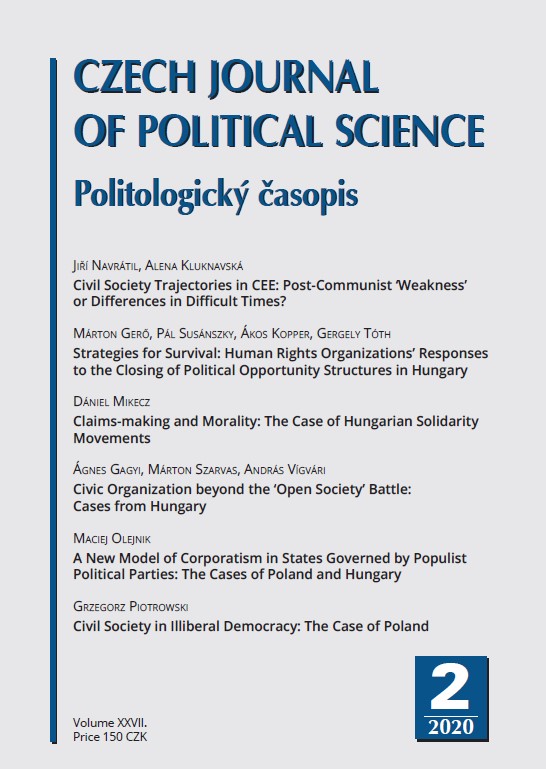Strategies for Survival: Human Rights Organizations’ Responses to the Closing of Political Opportunity Structures in Hungary
Strategies for Survival: Human Rights Organizations’ Responses to the Closing of Political Opportunity Structures in Hungary
Author(s): Márton Gerő, Pál Susánszky, Ákos Kopper, Gergely TóthSubject(s): Politics / Political Sciences, Social Sciences
Published by: Masarykova univerzita nakladatelství
Keywords: closing space; political opportunity structures; civil society; human rights; Hungary
Summary/Abstract: In the last decade, there has been a tendency for governments to impose tighter restrictions on civil society organizations, especially those promoting democracy and human rights. In this study, we examine how human rights organizations are responding to the increasingly hostile political environment in Hungary. The expanding limits on civil society organizations is usually discussed within a framework labelled as the closing space for civil society, which emphasizes the legislation and governmental actions directly attacking civil society organizations. Despite the impression that the restrictions threaten the existence of these organizations, a closer examination reveals that well-established organizations are capable of developing coping strategies to survive. To fully understand how these strategies are developed, we need to supplement this framework with the theory of political opportunity structures. This broader theoretical perspective examines the openness of decision-making processes for non-ruling actors and includes the role of perceptions in the examination of reactions to changes in the opportunity structure. As our study shows, perceptions about the social environment have a crucial role in understanding the strategies of human rights organizations. Examining the reactions of ten organizations, primarily using the method of organizational interviews, we show that rather than direct restrictions attacking civil society organizations, the major factor shaping their strategies is the closing of political opportunities. As a consequence of an almost total closure of decision-making mechanisms, they have been changing their activities from focusing on their roles as experts and working with state institutions to emphasizing social embeddedness, community building and raising awareness.
Journal: Politologický časopis - Czech Journal of Political Science
- Issue Year: XXVII/2020
- Issue No: 2
- Page Range: 119-139
- Page Count: 20
- Language: English

